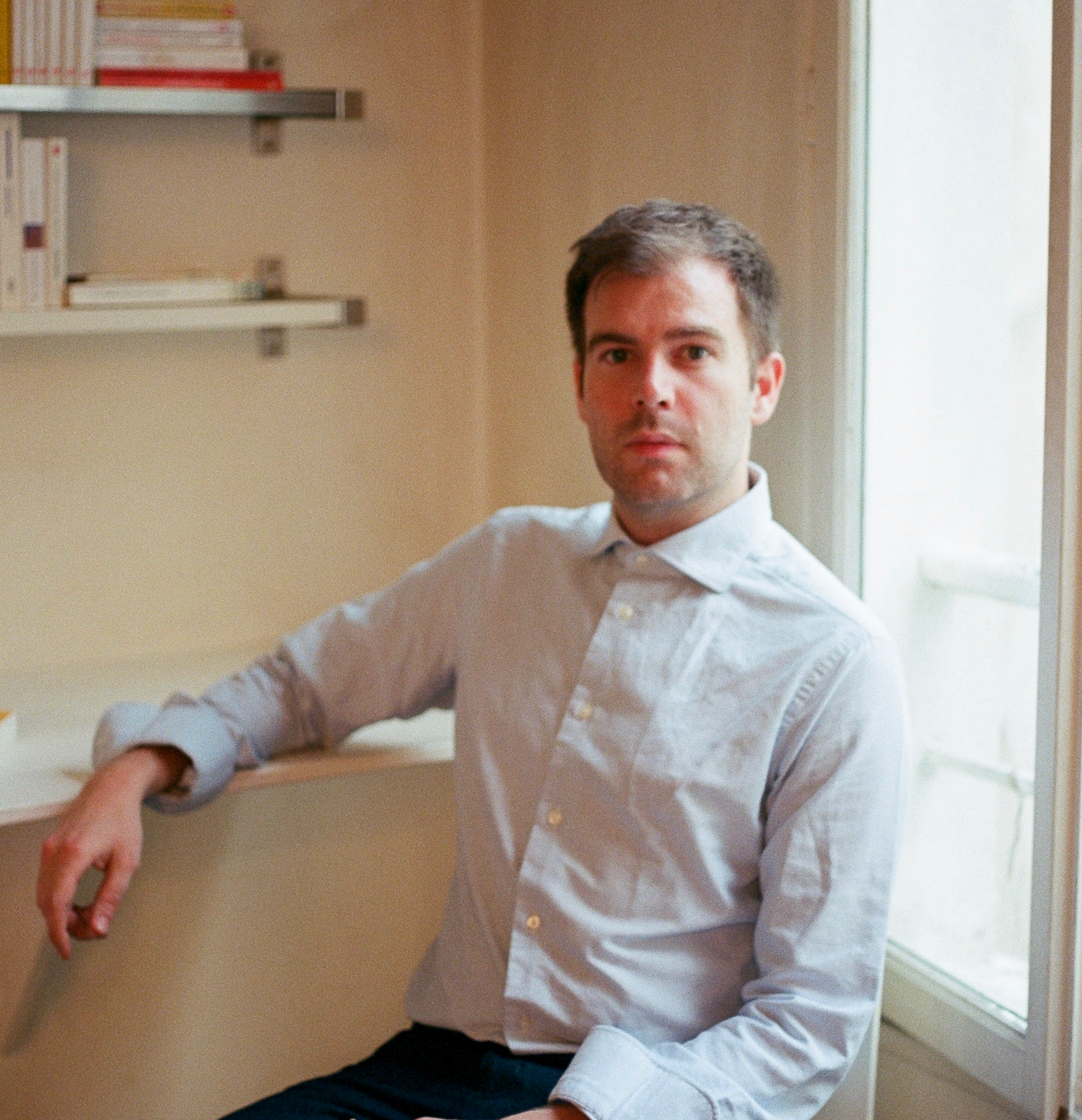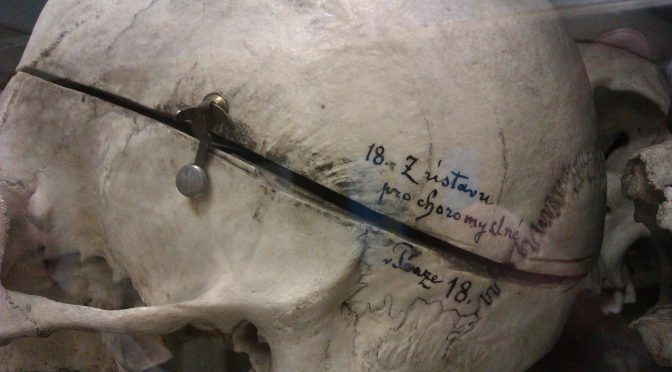Wild Pigs and Proud Elephants: Engendering Wildlife in Central Eastern Europe
Research Project: Bewildering Boar
Contact: szczygielska@cefres.cz
 Marianna Szczygielska holds a Ph.D. in Comparative Gender Studies from the Central European University. She is a member of the Environmental Arts and Humanities Initiative (Central European University) and an affiliated researcher of “The Seed Box: Environmental Humanities Collaboratory” (Linköping University). She also co-chairs a strand at GEXcel International Collegium for Advanced Transdisciplinary Gender Studies. With a background in philosophy her research interests include environmental humanities, animal studies, queer theory, critical race studies, and feminist science and technology studies.
Marianna Szczygielska holds a Ph.D. in Comparative Gender Studies from the Central European University. She is a member of the Environmental Arts and Humanities Initiative (Central European University) and an affiliated researcher of “The Seed Box: Environmental Humanities Collaboratory” (Linköping University). She also co-chairs a strand at GEXcel International Collegium for Advanced Transdisciplinary Gender Studies. With a background in philosophy her research interests include environmental humanities, animal studies, queer theory, critical race studies, and feminist science and technology studies.
Marianna’s project is organized around two stages, each focused on a particular “wild species” in its various relations to wildlife management and further politics enacted in Europe through the practices of hunting and zookeeping. Starting with a comparative analysis of human-wild boar interspecies relations in Poland and the Czech Republic, and leading towards a study of the history and present politics of keeping elephants in captivity in Central Eastern Europe (CEE), this interdisciplinary project aims at problematizing the category of wilderness and wildlife conservation in a specific geographic setting of CEE. In this sense, through a comparison between endemic and exotic species Europe will be brought into perspective in its complex relations to global environmental politics, as well as issues of nationalism, imperialism, post-colonialism and post-socialism.
CV
Education
2011–2017: Ph.D. in Comparative Gender Studies, graduated with Distinction; Central European University, Budapest, Hungary. Thesis title: Queer(ing) Naturecultures. The Study of Zoo Animals. Supervisor: Hadley Z. Renkin.
2009–2010: M.A. in Gender Studies, graduated with Distinction; Central European University, Budapest, Hungary. Thesis title: Becoming (with) Animal Others: Is the Anthropological Machine Set up in the Zoo?
2004–2009: M.A. in Philosophy, graduated with Distinction; Adam Mickiewicz University, Poznań, Poland. Thesis title: Ethics of Responsibility in the Face of Environmental Risks
Selected Publications
Peer Reviewed Journal articles
- “Jedząc kebaba… Zwierzęta i zwierzęcość a islamofobia,” [“Eating a kebab… Animals/Animality and Islamophobia.”] Praktyka Teoretyczna, 4(26)/2017: 238-248.
- “Hyenas and Hormones: Transpecies Encounters and the Traffic in HumAnimals,” in: Angelaki: Journal of Theoretical Humanities, Vol. 22 (2), April 2017: 61-84.
- “Animals Off Display,” UnderCurrents: Journal of Critical Environmental Studies, Special issue “From Queer/Nature to Queer Ecologies: Celebrating twenty years of scholarship and creativity,” Vol.19/2015.
- “Posthumanizm: dzień po rewolucji,” Czas Kultury 2015/1 (184), pp. 140-147.
- “Transbiological Re-imaginings of the Modern Self and the Nonhuman: Zoo Animals as Transbiological Entities,” Identities: Journal for Politics, Gender and Culture, Vol. 10/2014.
- “Technologically Assisted Life. Between Biopolitics and Thanatopolitics,” Annali di studi religiosi, Vol. 12/2011, Bologna.
Book Chapters in Edited Collections
- (Forthcoming) “Pandas and the Reproduction of Race and Sexuality in the Zoo,” (eds.) McDonald, T. and Vandersommers, D., Zoo Studies and a New Humanities, McGill University Press, 2019.
- “Zoos” (ed.) Salazar Parreñas, J., Gender: Animals Macmillan Interdisciplinary Handbooks. Farmington Hills: Macmillan Reference USA, 2017: pp. 247-262.
- “The heroines of sustainable development. Gender and sustainable development in a critical perspective”, in Proceedings from the international conference Equality, Growth & Sustainability. Do they mix?, (ed.) A. Fogelberg Eriksson, Linköping University, 2010:135-42.
Editorials
- (In prep.) Cielemecka O. and Szczygielska, M. (eds.), “Plantarium: Human-Vegetal Ecologies.” Special issue of Catalyst: Feminism, Theory, and Technoscience, Fall 2019.
- Steinbock, E., Szczygielska, M. & Wagner, A. (eds.), “Thinking Linking,” Special issue on “Tranimacies: Intimate Links between Affect, Animals, and Trans* Studies”; Angelaki: Journal of the Theoretical Humanities, Vol. 22(2), April 2017: 1-10.
- Nitis, M., Szczygielska, M., & Stark, W. (eds.), “The Conditions of Praxis: Theory and Practice in Activism and Academia,” Graduate Journal of Social Science, Vol. 10 (3), September 2013.
Book reviews
- Szczygielska, M., “Viewing the World Through the American Zoo,” a review of The Animal Game. Searching for Wildness at the American Zoo. by Daniel E. Bender in: Diplomatic History. Oxford University Press, September 2018, Vol. 42(4): 740–743.
- “The Bittersweet Dimensions of Racial Mattering” a review of Habeas Viscus: Racializing Assemblages, Biopolitics, and Black Feminist Theories of the Human. by Alexander G. Weheliye in Parallax, November 2015, Vol. 21(3).
- “Cloning Wild Life. Zoos, Captivity, and the Future of Endangered Animals.” by Carrie Friese in Pulse: A History, Sociology, & Philosophy of Science Journal, September 2014, Vol. 2(1).
- “The Queer Art of Failure.” by Judith Jack Halberstam in Graduate Journal of Social Science, July 2012, Vol. 9(2).
Outreach
- Szczygielska, M. “Captive breeding has a dark side – as disturbing Czech discovery of trafficked tiger body parts highlights,” The Conversation. November 26, 2018.
- Szczygielska, M. “Wild Boars and Family Values in Poland.” Bewildering Boar Blog. June 2018.
- Qubaia, A. and Szczygielska, M., “Feral Interview. A Conversation with Eva Hayward and Jack Halberstam,” An Audio Podcast, March 2018.
- Cielemecka O. and Szczygielska, M., “Vegetal Ecologies,” in New Materialism Almanac 2016,



